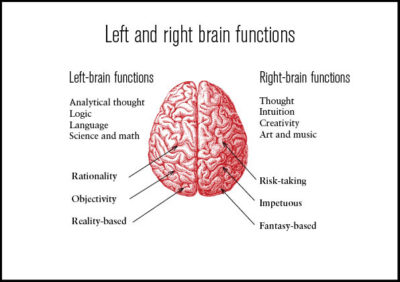By SUE COLETTA
 Most of us are able to recall one or two of our dreams, but what if there were ways to increase that number?
Most of us are able to recall one or two of our dreams, but what if there were ways to increase that number?
We’ve all heard the stories of hugely popular novels which stemmed from the author’s dreams. For example, Stephanie Meyer and Twilight. Dreams serve health benefits, too. Researchers believe dreams help with memory consolidation, mood regulation, and/or conflict resolution.
Nightmares aren’t fun. Night terrors are even worse. It’s important we pay attention, though, because they can signal a disruption in our lives and sometimes, provide the answer.
Sigmund Freud believed dreams were a window into our subconscious, that they paved the way to satisfy urges and secret desires that might be unacceptable to society. I agree with the first part of his theory, but I think the latter depends on the dreamer. When it comes to dream interpretation there’s no cookie-cutter, one-size-fits-all definition.
Case in point: crime writers dream about murder. If an average Joe plotted revenge in his dreams, it might be cause for alarm. When writers delve into the dark recesses of the subconscious mind, it’s research. 🙂
While some sleep experts believe dreams are an anomaly of sleep, others think they may help us save memories, problem-solve, and manage emotions.
Dreams and the Brain
During REM — rapid-eye movement, when brain activity piques — and non-REM sleep, we have the potential to dream.
Dreams are connected to the creativity part of the brain, called the Superior temporal gyrus![By Polygon data were generated by Database Center for Life Science(DBCLS)[2]. - Polygon data are from BodyParts3D[1], CC BY-SA 2.1 jp, https://commons.wikimedia.org/w/index.php?curid=9621805](https://killzoneblog.com/wp-content/uploads/2018/09/Superior_temporal_gyrus_animation.gif) .
.
We have three creativity sections of the temporal lobe…
- Superior temporal gyrus — mainly auditory, this gyrus is responsible for processing sounds, sound level and frequency, as well as interpreting language and social cognition.
- Middle temporal gyrus — connected to recognizing familiar faces, contemplating distance, and interpreting word meanings while reading.
- Inferior temporal gyrus — visual stimuli processing and recognition, memory and memory recall, particularly with objects. This gyrus stores the color and shape of objects so they’re easily recognized when we see that object again.
This could explain why serial killers, who often have temporal lobe damage or malformations, experience different phases before, during, and after they kill. And why, during the Aura Phase colors become vibrant.
Did you notice in the 3D image the temporal gyri aren’t limited to the right-side?
Right Hemisphere vs. Left Hemisphere
 Brain cells in the left hemisphere have short dendroids which pull in information.
Brain cells in the left hemisphere have short dendroids which pull in information.
The right hemisphere branches out wider to absorb distant unrelated ideas, connections between concepts, and is responsible for insight and Ah-ha! moments. It’s here where our creativity comes alive.
Part of the Brain Responsible for Dreaming
The cerebral cortex is responsible for our dreams. During REM sleep, signals are sent from an area of the brain called “the pons” and then relayed through the thalamus to the cerebral cortex, which attempts to make sense of these signals. The end result is dreaming.
The pons also send signals to neurons in the spinal cord, shutting them down, causing temporary paralysis of the limbs. This safety switch prevents the dreamer from physically acting out dreams and harming themselves. However, there are exceptions. A condition called REM sleep behavior disorder exists. Can you guess what this causes? If you said, the pons fail to paralyze the limbs during REM sleep, you’re correct.
Why Dreams Are Difficult to Recall
Some researchers believe we’re not designed to remember our dreams. If we had perfect recall, dreams might get confused with real-life memories. During REM, maybe our brain shuts off the Inferior temporal gyrus, responsible for memory recall. And why, we may only recall our last dream before waking, because that part of the brain is now switched back on.
Studies show people actually have more brain activity and more vivid dreams during REM. Others say our brains store dreams, which is why the tiniest detail later in the day can trigger the memory of what we’d dreamed the night before.
8 Tips to Recall Dreams
Sound sleepers are less likely to recall dreams. If you fall into this category, consider yourself lucky; the rest of us don’t sleep as well. Even so, maybe these tips will help:
- Don’t use an alarm clock. We’re better off waking naturally. When that annoying buzz startles us awake, we’re concentrating on slapping the snooze button rather than dream recall.
- Once you get in bed tell yourself to remember your dreams. This may sound silly, but sometimes making the conscious choice to do something works wonders.
- Upon waking, don’t move. Studies show if we remain in the same position as when we had the dream, we’re more likely to remember the details when we wake. Keep your eyes closed and concentrate on the emotions you felt while dreaming. Were you frightened? Exhilarated? Blissful? By first tapping into our emotions, we’re more likely to recall the circumstance. In this case, the dream.
- When you wake, concentrate on recalling your dream rather than reviewing your to-do list for the day. Easing into your day promotes healthy living and helps with dream recall.
- Regular routine. Going to bed and waking at the same time each day aids in dream recall.
- Keep a dream journal next to your bed. When that perfect plot idea jolts you awake, scribble the scene in a notebook before you forget, the more detailed the better. Or sketch pictures of what you envisioned. Don’t worry if it doesn’t make sense yet. Author Ruth Harris suggests several pads, pens, and notebooks that would make perfect dream journals.
- Tell your significant other, roommate, or writer friend your dreams. By bringing dreams into your reality, it helps to recall the next one. Maybe skip the intimate dreams if they do not include your partner. I can hear it now, “Don’t blame me. Sue told me to tell you my dreams.” An angry mob of jilted lovers storms my home, with pitchforks and murder on their mind! Seriously, though, the above link is fascinating and might also help explain why you’re having sexy dreams about Mr. or Mrs. X.
- Studies show pleasant aromas cause happy dreams. Whereas unpleasant odors cause bad dreams and/or nightmares.
- Don’t get discouraged. Mastering dream recall takes time. The more you practice, the better you’ll get.
So, my beloved TKZ family, are you able to recall dreams? Have you ever used dreams in your writing?










